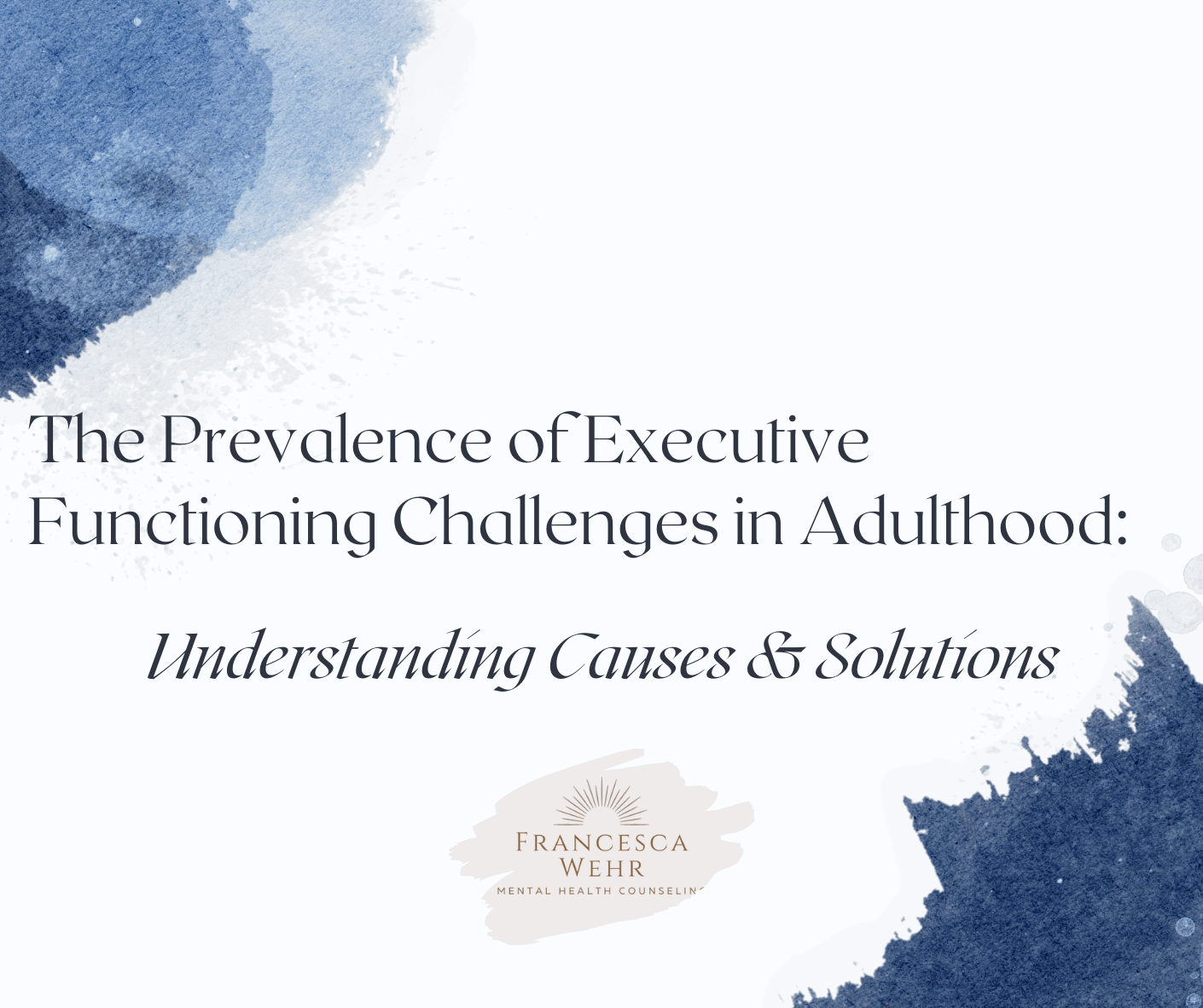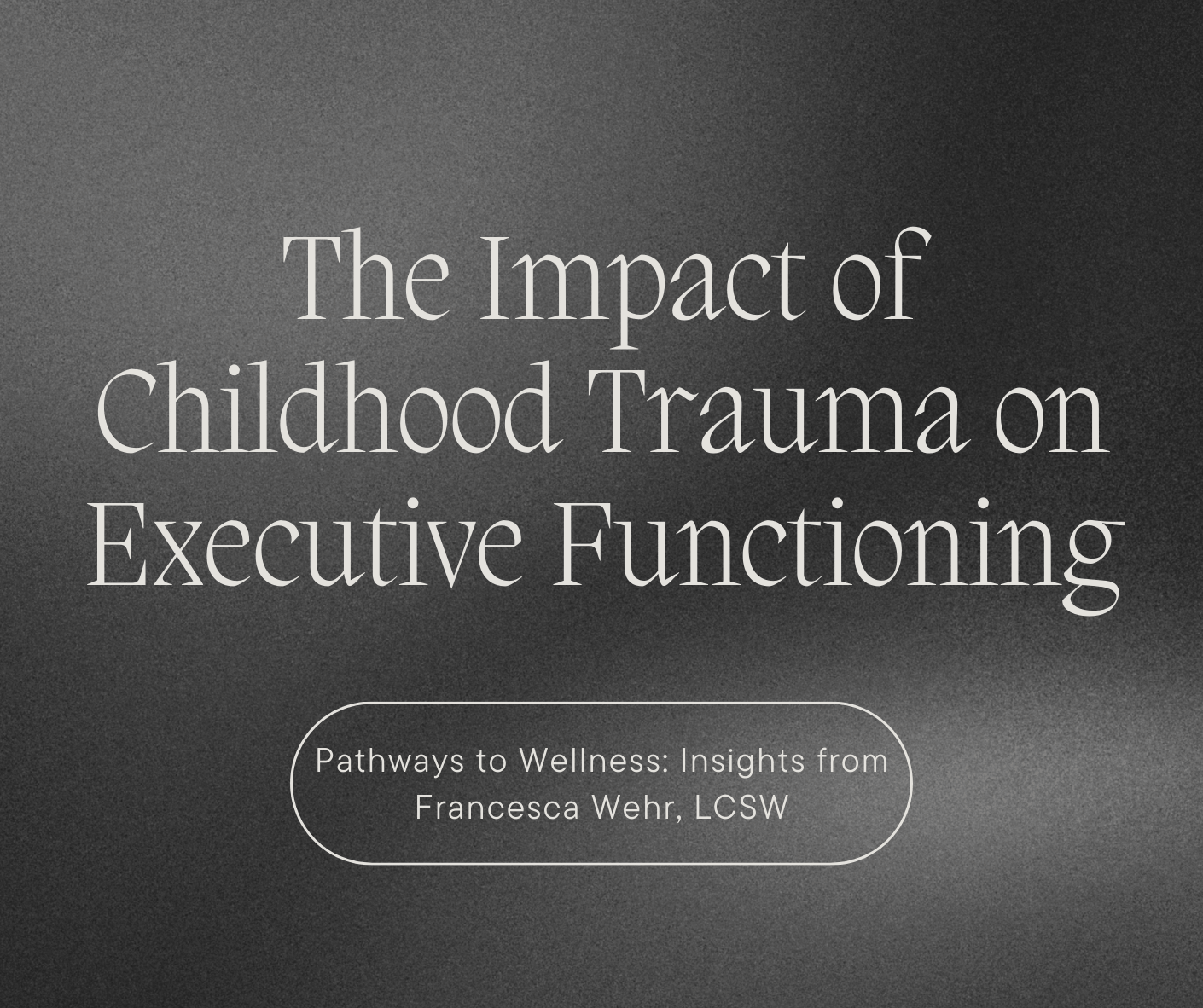
Mastering Productivity with the Eisenhower Matrix: A Simple Guide to Prioritizing Your Tasks
Feeling overwhelmed by your to-do list? The Eisenhower Matrix is a powerful tool to help you prioritize tasks based on urgency and importance. By categorizing tasks into four key quadrants, you can focus on what matters most, delegate less important tasks, and eliminate time-wasting activities. Learn how this simple matrix can boost your productivity, reduce stress, and help you achieve your long-term goals.

The Prevalence of Executive Functioning Challenges in Adulthood: Understanding Causes and Solutions
Executive functioning challenges are common in adults, making tasks like time management, planning, and decision-making difficult. These cognitive struggles can be influenced by ongoing brain development, mental health conditions, and even childhood trauma. However, executive functioning skills can be improved with the right strategies. This guide explores the causes of executive functioning challenges in adulthood and offers practical solutions to enhance focus, organization, and self-regulation.

Mastering Time Management with Executive Functioning Disorders: A Comprehensive Guide
Time management can be a significant challenge for individuals with executive functioning disorders, such as ADHD or learning disabilities. Difficulty with planning, prioritizing tasks, and time perception can make staying organized feel overwhelming. In this guide, we explore proven strategies like using visual timers, breaking tasks into smaller steps, and creating structured routines to help you take control of your day. Learn how to boost productivity and reduce stress with practical, easy-to-implement time management techniques.

The Impact of Childhood Trauma on Executive Functioning
Childhood trauma can have long-lasting effects on executive functioning, impairing key cognitive processes like emotional regulation, planning, and problem-solving. These deficits stem from changes in brain development caused by early-life stress, making it difficult for trauma survivors to manage daily tasks, control impulses, and stay organized. However, with the right interventions, such as trauma-focused therapy, mindfulness practices, and executive functioning coaching, it’s possible to rebuild these skills and improve cognitive performance. This guide explores how trauma impacts executive functioning and offers strategies for healing and growth.

Pathological Demand Avoidance (PDA): The Invisible Battle for Autonomy in a World of Expectations
Pathological Demand Avoidance (PDA) is more than procrastination—it’s a nervous system response rooted in anxiety, trauma, and a deep need for autonomy. This post explores how PDA shows up in daily life, how it overlaps with rejection sensitivity, and what it means to truly support someone caught in the cycle of avoidance, shame, and overwhelm.

Mastering the Mind’s Command Center: A Guide to Executive Functioning
Executive functioning is the brain’s management system, controlling key skills like working memory, flexible thinking, and self-control. These processes help us plan, focus, and regulate emotions. This guide explores the importance of executive functioning, how it affects daily life, and practical strategies to improve these mental skills.




